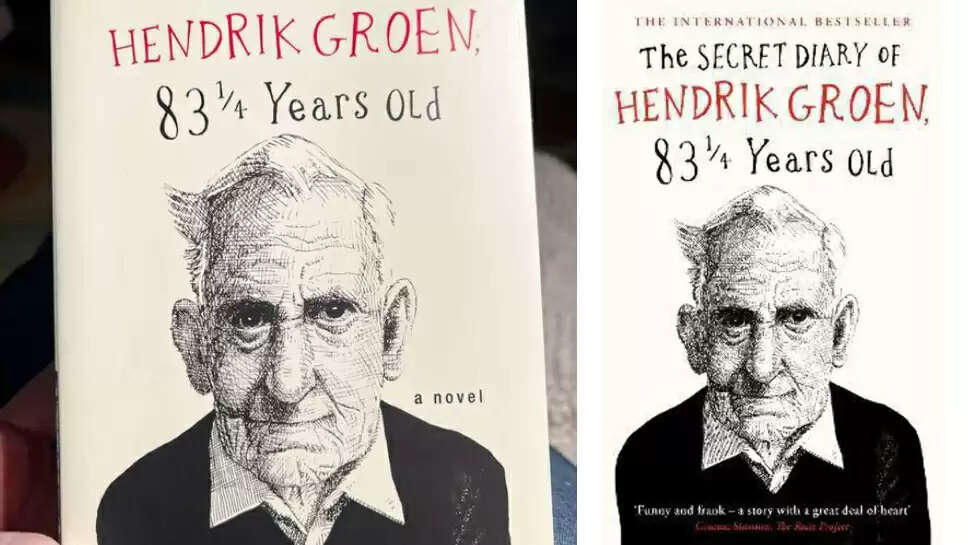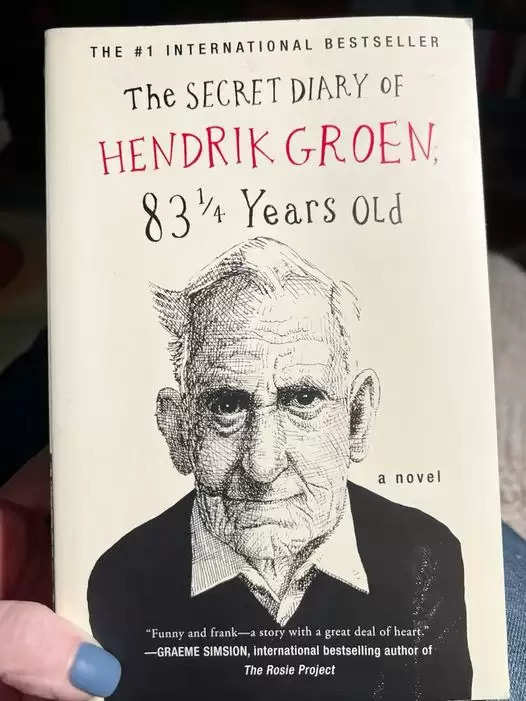The Secret Diary of Hendrik Groen, 83 1/4 Years Old

1. Embrace Aging with Humor
One of the most interesting things about Hendrik's book is how he managed to make his daily life funny. Ageing can be scary because of all the changes and problems that come with it, but Hendrik's clever comments makes many of these times fun. His ability to find humour in the silly things that happen in a nursing home shows how laughter can help you stay strong and have a good attitude. In spite of the problems that come with getting older, a good laugh can make the process a little easier and a lot more fun.
2. Value of Friendship
The book does a great job of showing how important friendships are, especially as you get older. One of the main things that makes Hendrik happy and healthy is his close relationships with other people. The things they've been through together and the support they give each other make them less lonely and improve their lives. This part of the story shows how important friendship is for older people, giving them mental support and a sense of belonging that can make their life a lot better.
3. Defiance Against Stereotypes
Hendrik Groen is a refreshing defiance against the stereotypical image of the elderly as frail and passive. Through his diary, Hendrik challenges these stereotypes by portraying himself and his peers as vibrant individuals with their own desires, dreams, and a sense of agency. His refusal to accept the limitations often imposed by age serves as a powerful reminder that growing old does not mean losing one’s worth or capabilities. It’s an inspiring message that encourages readers to view the elderly as active and capable individuals.
4. The Importance of Community
Another significant lesson from Hendrik’s diary is the role of community in the lives of seniors. Hendrik and his friends form their own "Old-But-Not-Dead Club," a testament to their need for social engagement and shared experiences. This makeshift community provides a sense of belonging and combats feelings of isolation. The book illustrates how creating and maintaining social connections can make a substantial difference in the lives of elderly individuals, fostering a supportive and enriching environment.
5. Living in the Present
Many of Hendrik's thoughts are about how important it is to live in the present. In his writing, he talks about how short life is and tells people to enjoy the little things in it, like a cup of coffee or a laugh with friends. His diary reminds us to enjoy the present moment and find happiness and satisfaction in the little things that give our lives value.
6. Facing Mortality with Grace
The book does not shy away from addressing the realities of aging and mortality. Hendrik discusses the challenges of declining health and the inevitability of death with a sense of acceptance and dignity. His approach to these topics, while candid, is marked by a grace that encourages readers to confront their fears and approach the end of life with a sense of calm and acceptance. It’s a poignant reminder of the importance of facing mortality with dignity and courage.
7. Pursuit of Joy
Hendrik is determined to find joy in his life, despite the inevitable challenges that come with aging. Whether through small pleasures or larger adventures, his pursuit of happiness is a central theme in the book. This relentless quest for joy, even in the face of adversity, serves as an inspiring example of how to prioritize fulfillment and find happiness at any stage of life.
8. The Power of Reflection
Writing in his diary provides Hendrik with a space to reflect on his life, relationships, and experiences. This practice of self-reflection helps him process his emotions and gain valuable insights. The therapeutic benefits of journaling are evident in his ability to navigate complex feelings and gain perspective, highlighting the value of self-expression as a tool for emotional well-being.
9. Advocacy for the Elderly
Hendrik works to improve how we understand and care for the old through his observations and criticisms. He says bad things about the healthcare system and how people think about getting older, and he urges readers to see the value and worth of older people. His work as an advocate for the elderly is a call to action for better care and respect for them, which promotes a more caring and welcoming approach to getting older.
10. Legacy and Impact
Finally, Hendrik’s story emphasizes the importance of leaving a legacy through meaningful connections and the impact one has on others. His relationships and the memories he creates with friends illustrate how the influence we have on those around us can transcend time. This aspect of the book underscores that a true legacy is built not just through material means but through the love, wisdom, and connections we leave behind.
In conclusion, "The Secret Diary of Hendrik Groen" deftly examines the nuances of ageing through the use of both humour and poignancy. By following Hendrik's journey, readers will better comprehend what it's like to be an ageing person, the value of friendship and community, and the strength and happiness that come from overcoming adversity. No matter your age, you will find profound wisdom in this entertaining and thought-provoking book.

Book: https://amzn.to/3T8dZoK
--
-- Class Dismissed --
You Might Also Like: 7 Lessons from "How to Make Work Not Suck" by Carina Maggar
